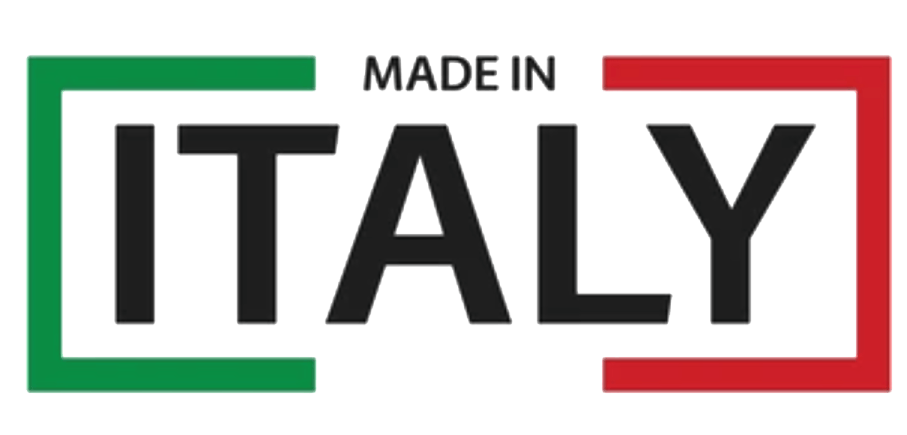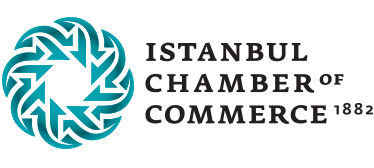Study Undergraduate in Italy
When it comes to education in Italy, the first thing that comes to mind is studying undergraduate in Italy. Italy attracts thousands of students from all over the world each year. In addition to a well-established educational background, it also draws attention with its modern universities and wide-ranging opportunities. Moreover, Italy has also made significant contributions to European higher education in the field of research and development in recent years. The Bologna Process, which is named after the University of Bologna and aims to establish a standard higher education system and increase cooperation, is only a small example.
Why University Education in Italy?
As we mentioned before, Italy is home to Bologna University, the oldest university in the world.
Since its establishment, the Italian education system has been in continuous growth and development. Every year thousands of students choose Italy, thanks to the wide opportunities it offers.
For international students, it continues to address both affordable and quality education in Europe with its low tuition fees and scholarship opportunities. Due to Italy’s opportunities, an increasing number of international students prefer their education in Italy every year.
Today, Italy is home to many prestigious universities. According to the world’s leading university quality research institutions, most of the universities in Italy are in the top 200, top 500, or top 100 according to their field. According to QS 2020 data, 36 Italian universities are among the top 500 universities in the world. In this field, Italy is the third country with the highest number of universities in Europe’s top 500.
Italy has also played an important role in the recent reform of higher education. This reform is known as the “Bologna Process.” Italy is one of the four founding countries of the European Higher Education Reform. Today, the Bologna Process is applied in all of Europe and nearby geographies.
With its education and its exciting cities, wonderful landscapes, hundreds of artistic activities, and historical textures in every city, Italy is the perfect choice for education and life. Due to the proximity of culture and climate, students adapt the fastest to education and life in Europe.
Language of Education in Italy
The language of undergraduate education in Italy is Italian, which is the official language of the country.
You can review our “Language Schools in Italy” article.
In addition, there are more than 300 English-taught education programs. In order to study in Italy, students usually prefer;
- Engineering
- Architecture
- Medicine
- Psychology
- Dentist
- Pharmacy
- Law
- Business Economics
- International relations
- Fashion design
- Gastronomy
- Fine Arts
Also, you can check our “University Programs to Study In Italy” article.
Duration of Undergraduate Education in Italy
Studying an undergraduate course in Italy lasts 3 years in the Italian education system.
According to the European Credit Transfer System (ECTS), an average of 30 credits of courses must be taken each semester. Accordingly, the total credit for 3-year undergraduate education is 180 ECTS. When 180 ECTS is completed, and the requirements such as internship and undergraduate completion thesis in the education plan are fulfilled, the student graduates. When you graduate from Italy, you will have a “blue diploma” valid throughout Europe. With this diploma, you will have the chance to work all over Europe and the world. In the next period, you can continue your graduate education in Italy or convert your residence permit to a work permit in case of finding a job. Although job opportunities in Italy are more limited than in other countries, if you have competence in a field and can speak Italian, you will be more likely to find a job. You can find answers to your questions about working while studying undergraduate in Italy in this article.
How to Study Undergraduate in Italy?
So you want to study at a university in Italy, but how? We can answer the question: this process will be a long-term process since it includes many issues such as application acceptance, consular procedures, and transactions in Italy. Before the academic year, you want to start your education in Italy; you need to follow the application processes that began in December and get your acceptance letter. Afterwards, a long and tiring process, such as the consulate and official transactions in Italy, University life awaits you.
Some programs accept students by exam, some departments by methods such as Skype interview, and some programs without examination for education in Italy.
The programs that accept students by exam in Italy are more science-oriented programs such as medicine, architecture, engineering, dentistry, and pharmacy. Specific exams such as IMAT, TOLC, and TIL are organised for these programs. Exam content of the curriculum areas such as science and math reasoning. Although there are many similarities in many countries’ education, it is essential to get support during the exam preparation process due to the differences. However, the preparation process is possible with courses and a professional approach that will follow a strict follow-up and development process. We follow the entire preparation process for our students. The increasing number of applications each year brings competition with it. In order to prepare students for this competition in the best way, it is very important to choose the most appropriate resources, create and follow up a study program, and conduct a student-specific process.
For programs accepting students without an admission exam, criteria such as language proficiency, academic motivation, and academic achievements are considered. For these programs, it is necessary to prepare a good application file, present the most suitable options, and follow the application process.
Since there are different evaluation criteria for each program, getting professional support will help you evaluate the program options and benefit from Italy’s opportunities.
For detailed information, “How to study university in Italy?” You can browse our article.
Education Fees and Living Costs in Italy
The annual tuition fees of public universities in Italy are between 500 and 3,000 Euros.
Tuition fees in public universities are generally determined by considering family income. There is a procedure you should follow to get discounts on tuition fees. You can consult our team with education and life experience in Italy to get professional support on the subject.
Private universities mostly provide education in specific fields such as fashion and design, design, business, medicine, gastronomy, and art education.
The annual tuition fees of private universities start from 5000 Euros and can go up to 25000 Euros.
For detailed information, you can take a look at our “Education Fees in Italy” article.
Besides, there are also scholarships from the Italian government and merit-based scholarships from some universities. These options also offer important support in financing your education life in Italy.
For detailed information, you can check our article “Study on a Scholarship in Italy.“
The monthly expenditure of a student in Italy is between 600-800 Euros, including all expenses. When a calculation is made over 10 months, which is the duration of education, and the tuition fees are included, the annual cost of living in Italy is between 7,000-9,000 Euros.
For detailed information, you can check our “Cost of Living in Italy” article.
Study Undergraduate on a Scholarship in Italy
It is possible to study undergraduate in Italy with a scholarship, which is famous for its low tuition fees! While studying in Italy, you can receive scholarships ranging from 2.000-5.200 Euros per year. Although this amount does not cover all your living expenses, it will significantly contribute to your budget. For our students who want to study in Italy, we support scholarships and other opportunities offered by Italy.
Advantages of Studying Undergraduate in Italy
There are many advantages to studying undergraduate in Italy. We can list these advantages as follows:
When you study undergraduate education in Italy, you will have a “blue diploma,” which is valid in Europe and the world. Suppose you find a job in Europe or the world’s different countries with a Blue diploma. In that case, the bureaucratic process is much more comfortable to deal with compared to someone who graduated from non-Eu countries.
You can also check our “Places to Visit in Italy” article.
University Education in Italy – 3 Years Advantage
Undergraduate education in Italy takes 3 years. This also means that you and your peers graduate earlier than people starting university in other countries. If you find a job in Italy after graduation, you can start working or continue your master’s education to specialize in your field. Either way, you’ll begin life earlier. You can also finance your education expenses in this process. In other words, you will be in a much more advantageous position in terms of economy, experience, and academic competence compared to your peers. You can also gain advanced bilingual speaking competence. This will make you both a world citizen and a competent individual who keeps up with the times.
With advanced Italian you will learn, you can get the chance to work and live in Italy.
World’s Best Universities in Italy
Italy is the third country in Europe with the highest number of universities in the world’s top 500. Studying at Italian universities means getting a world-class education.
Italy is home to thousands of international students every year. When you study English in Italy, you will make friends from many different countries and cultures of the world. This will provide you with a worldwide network and world citizenship.
Many programs exist to study at an undergraduate level in Italy. Thanks to Italy’s well-established and world-class education, you will have the chance to study in areas that will be popular in the future.
You can read our article “Best Universities in Italy“.
Advantages of Learning Italian
When you study as an undergraduate in Italy, you will learn Italian at a good level in addition to academic English. This will make a significant contribution to your business life as an important plus in your CV.
Universities Providing Education in English in Italy
There are many universities in Italy that provide education in English. According to the programs you want to study, you can choose universities specialized in that field. For example, when it comes to business-economics education, universities such as Bocconi University and when it comes to architectural education, universities such as Politecnico Di Milano come to mind. However, your choice of program and university is much more comprehensive.
University Education without Admission Exams in Italy
There is no central university entrance exam in Italy. You have the opportunity to receive admission with or without an examination according to the programs. The programs where you can get admission without an exam are mostly related to social sciences. However, it is worth remembering that language proficiency at the B2 level is required for education in Italy. ????
You can find detailed information in our article on “University Education without Admission Exams in Italy.“
Question about Undergraduate Education in Italy
How much are tuition fees in Italy?
Tuition fees in Italy vary between 500-3,000 Euros per year in public universities.
In private universities, it is between 7,000 and 25,000 Euros.
You have the chance to get discounts on tuition fees at public universities. However, there is a process you should follow regarding this. Private schools, on the other hand, offer various scholarship opportunities to talented and competent students. You can contact us to get information about the professional consultancy services we provide in the whole process, from tuition fees and application until you are ready for your education in Italy.
How Can I Study in Italy? What are the Requirements?
There are different admission requirements in Italy at the level of undergraduate, master’s certificate, and specialist programs related to university education. As general conditions, admission exams are held in medicine, architecture, engineering, and pharmacy programs. For other programs, there are Skype interviews or no-exam admission options. In addition, a language certificate at the B2 level is required. At the master’s level, there is usually a language certificate at the B2 level and a bachelor’s degree in the related field. There are different admission requirements in the certificate and speciality programs.
You can also check our “Requirements to Study University in Italy” article.







